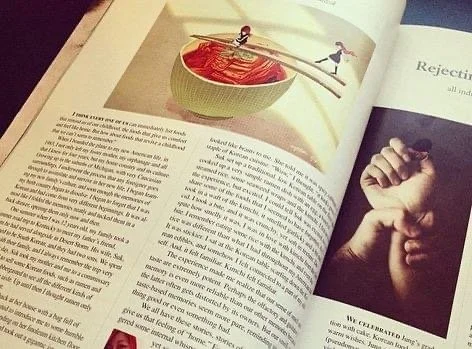It’s AAPI Heritage Month. One of the things I’m most proud about being Korean is our cuisine. I love Korean food. As an adoptee growing up I had little connection or knowledge of where I came from, but then I happened to attend a college with a high rate of international Korean exchange students. This began my exposure to everything Korean and a love affair of finally learning where I came from. This extended to making friends with many Korean women (who loved to cook); ranging from motherly to sisterly status. During this time I wildly got into cooking anything Asian. As a teenager I worked in a (American style) Chinese restaurant for years, so interest in Asian cooking began with learning a handful of authentic Chinese dishes I pried from the cooks and owner. This interest expanded into Korean and any cuisine I could try.
I’ve been cooking since I was a kid—learning from my grandma and mom who were always in the kitchen. I truly loved cooking for others. Cooking is an amazing way to be creatively present, harnessing all basic properties of design. Our home used to be warm with constant entertaining but I haven’t cooked the last few years due to my progressive muscle-wasting condition clutching the last of my cooking hands (day I had been dreading). I really miss it. I truly do. Cooking was my love language, but alas, like everything about this disease, there’s a time limit.
(below are some photos of my cooking through the years.)
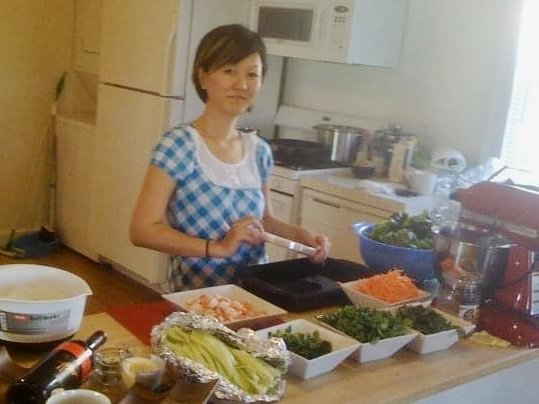
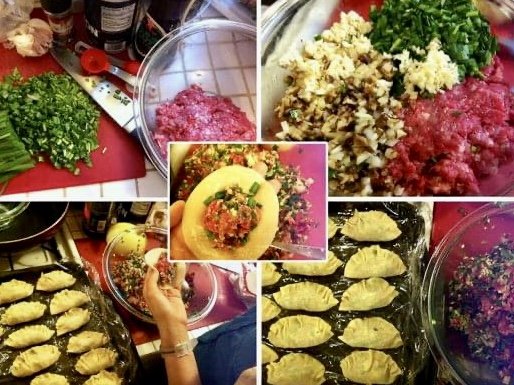

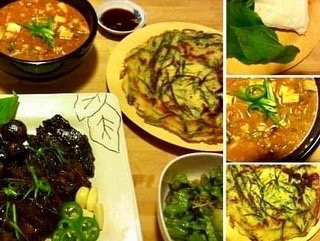
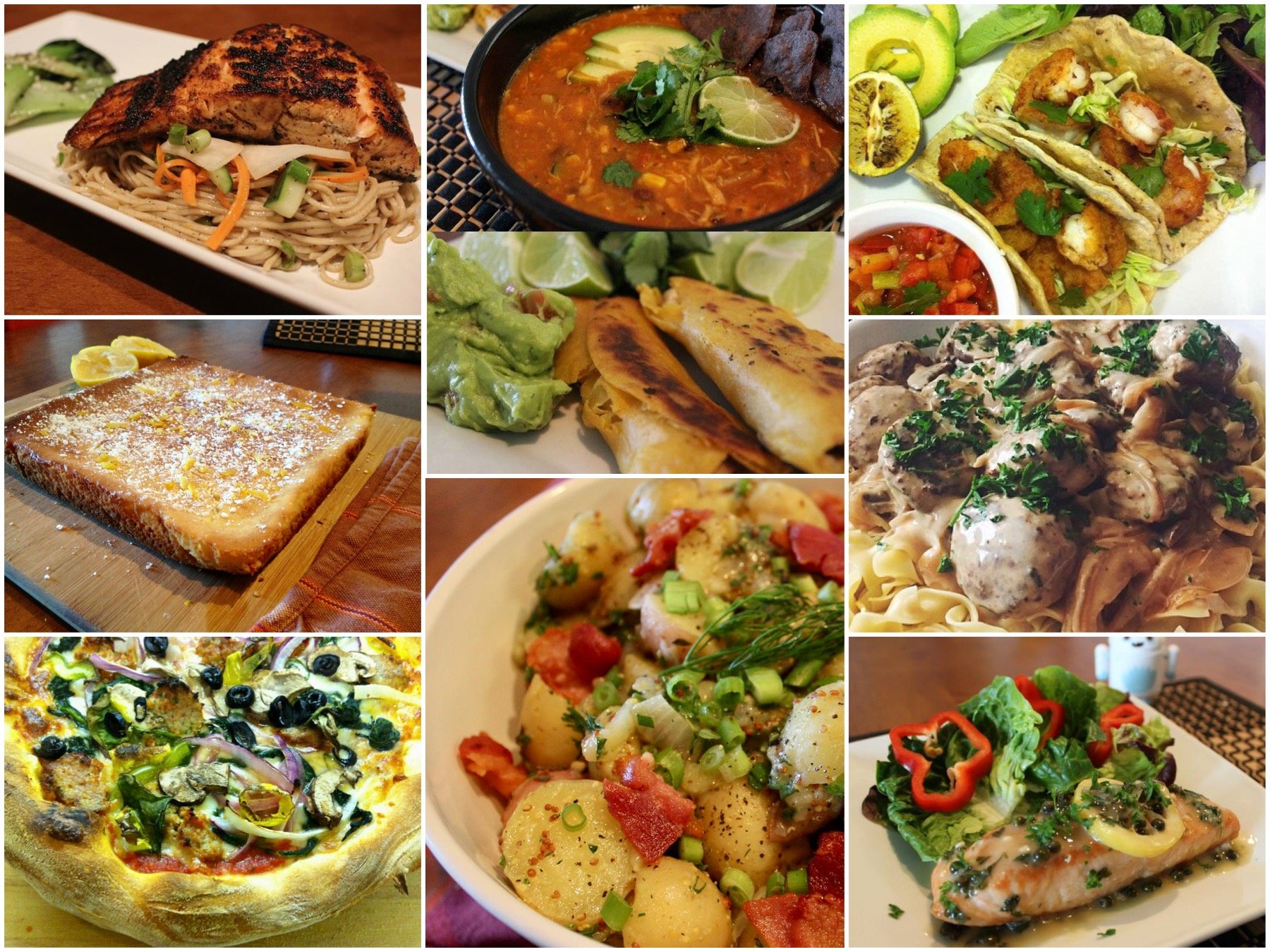
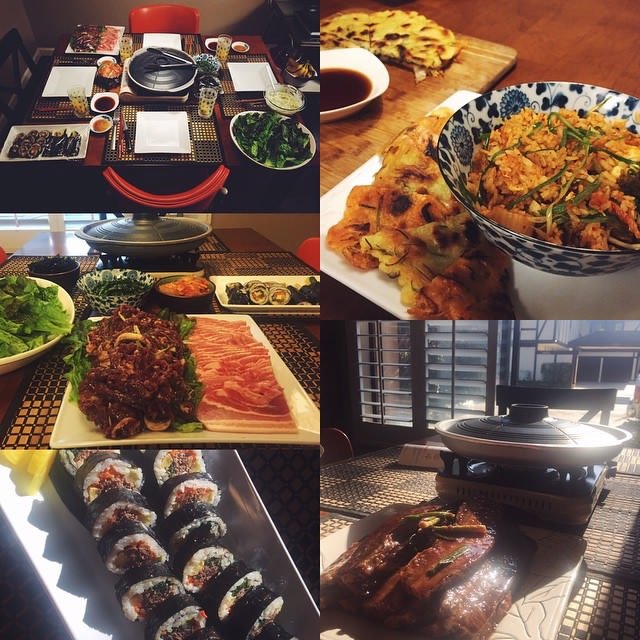
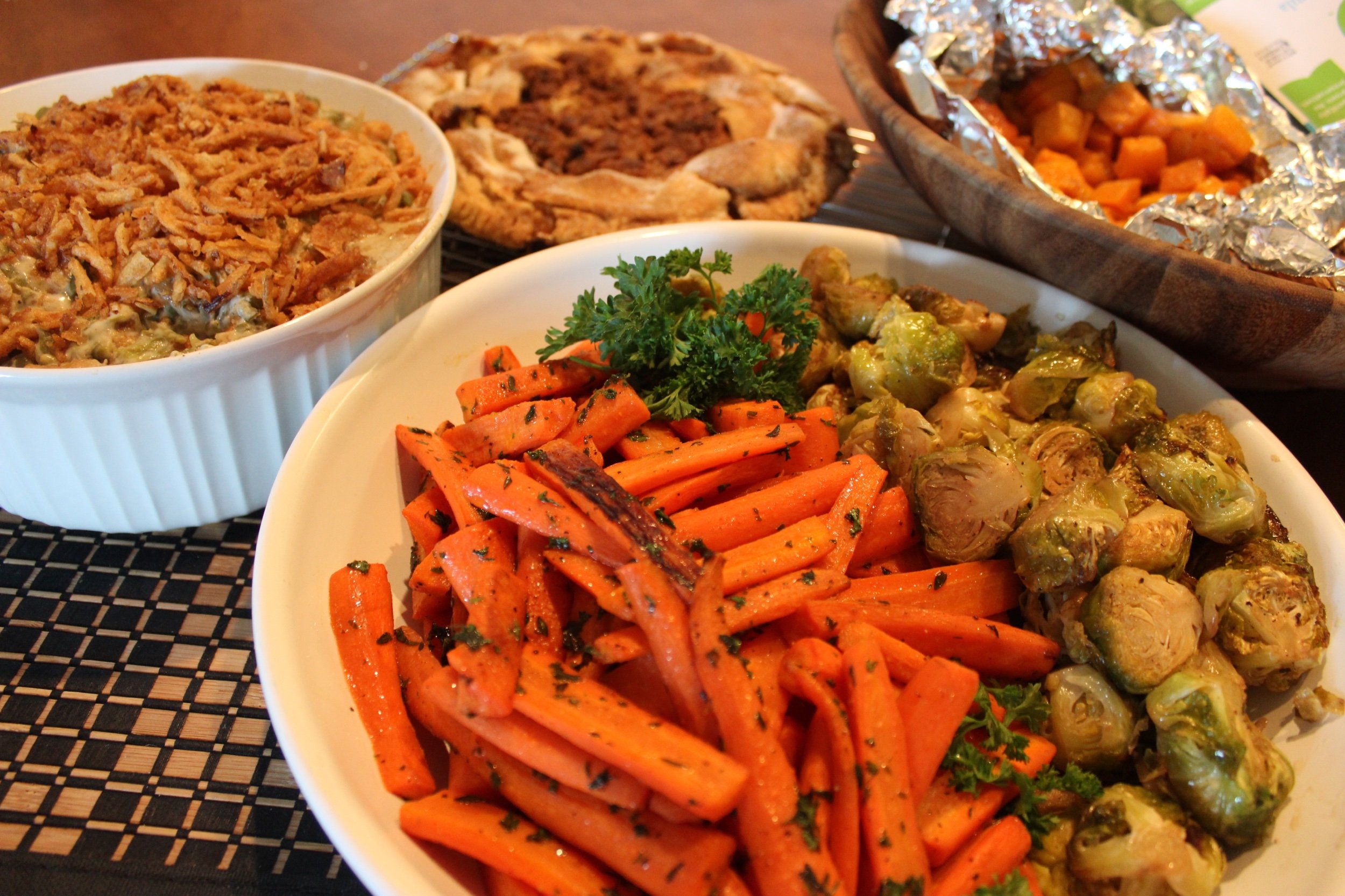
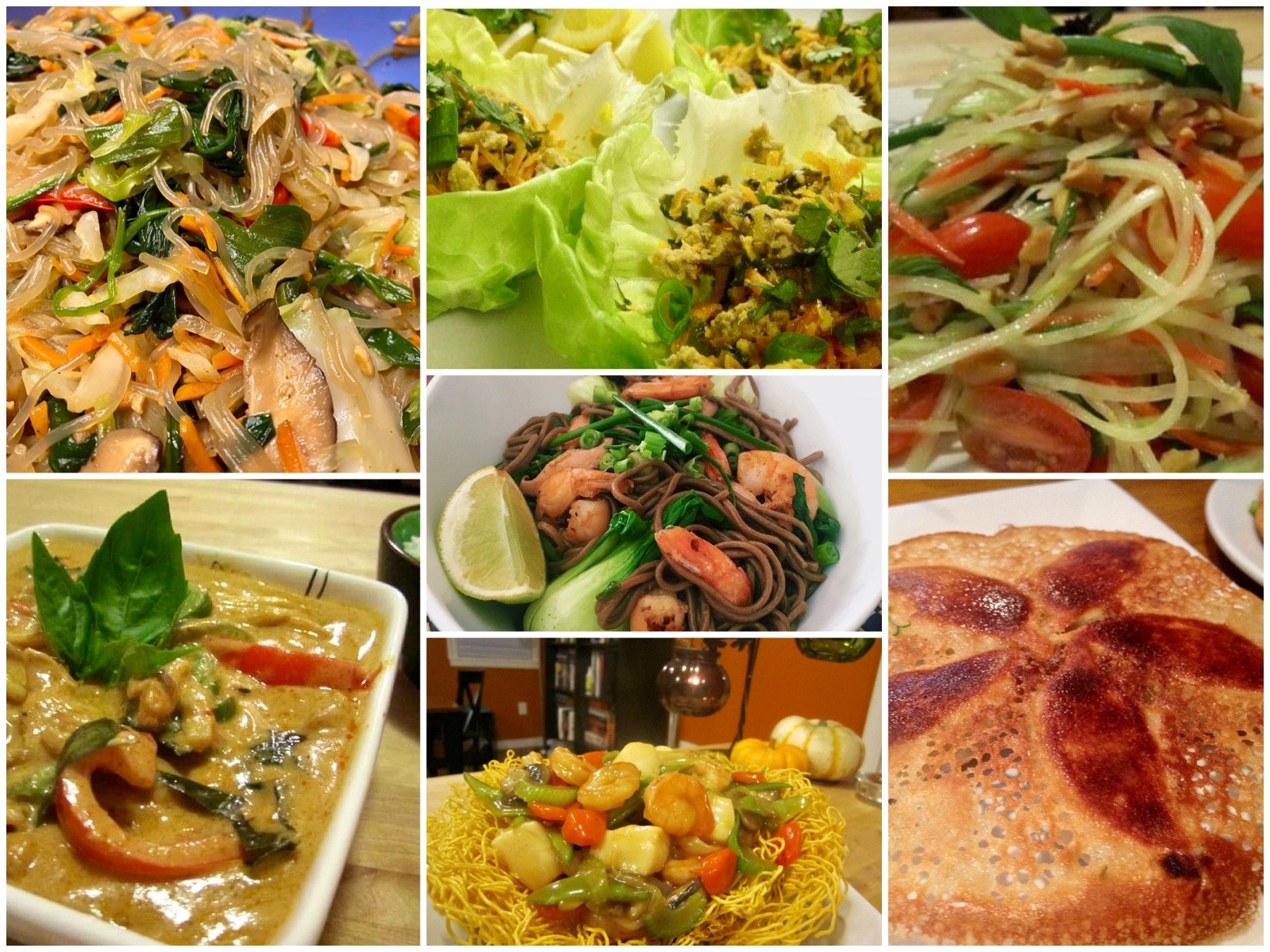

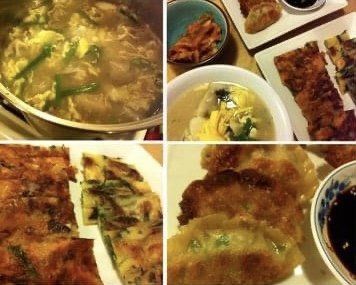
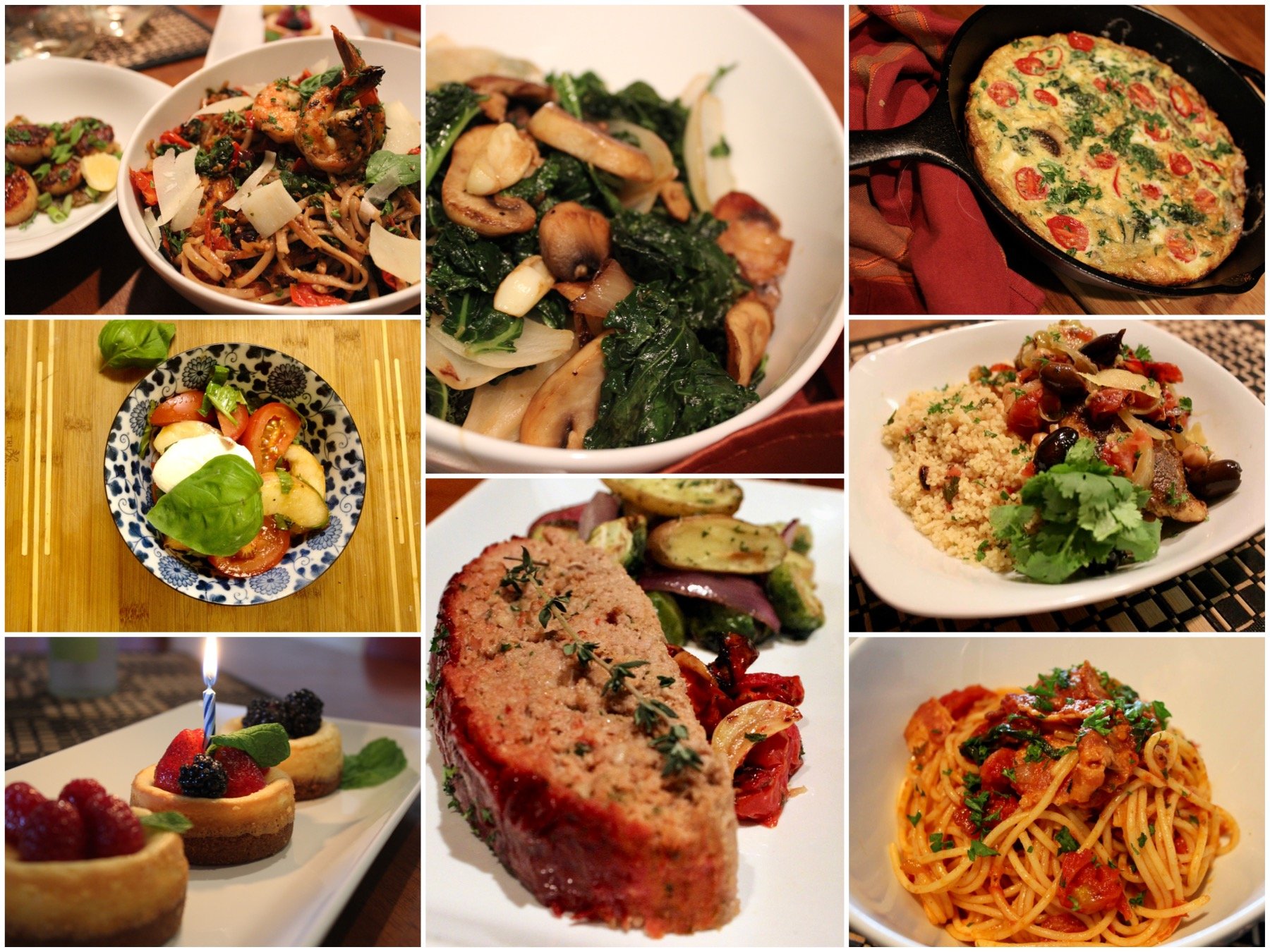
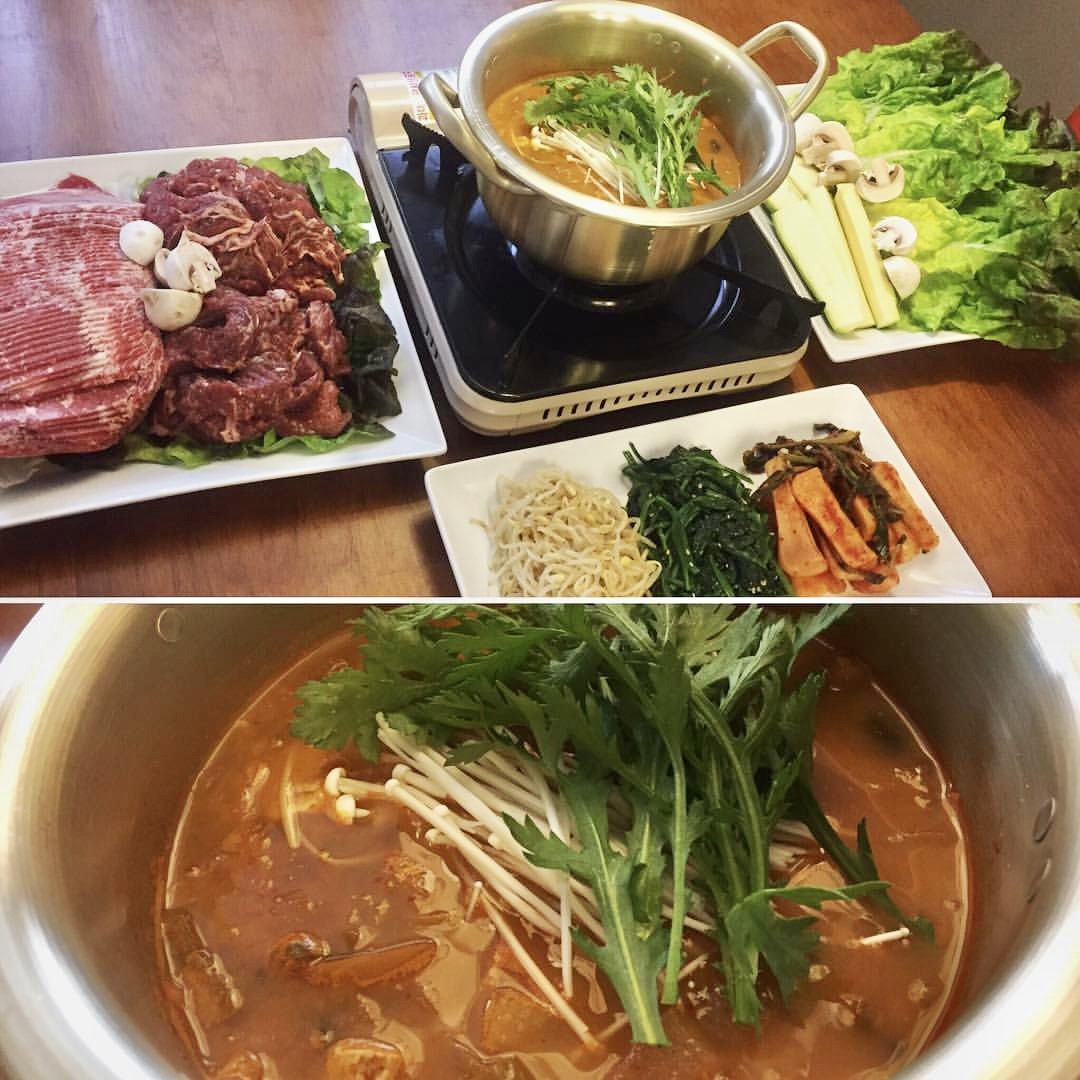
Food connects and opens people because food is very personal. It’s an offering, an extension of love and kinship. When we perceive something different, we inherently fear it first, but through food we can see another’s’ humanity—mirroring kinfolk archetypes who have loved us as children through food; reminding us of our moms, grandmas, sisters and the family who fed us. It breaks down walls and irrational fears.
Kimchi Nostalgia
Here’s an essay (Kimchi Nostalgia) I wrote in 2014 for KoreAm Journal, sharing me trying kimchi and my birth country’s food for the first time:
“I think every one of us can immediately list foods that remind us of our childhood, the foods that give us comfort and feel like home. But how about foods that revive a childhood that we can’t seem to remember? When I boarded the plane to my new American life, in 1983, I not only left my foster mother, my orphanage and all that I knew for four years, but my home country and its culture.
Growing up in the suburbs of Michigan, with very Caucasian surroundings, I underwent the process that any foreigner goes through to assimilate and survive in her new life. I began learning my new family’s culture, and soon enough the memories of my birth country began to dissolve. I began to forget that I was Korean and had come from very different beginnings. It was almost like I folded the memories neatly and tucked them in a back drawer, opening them only now and then.
One summer when I was 12 years old, my family took a summer road trip to Kentucky to meet my father’s friend, whom he had served alongside in Desert Storm. His wife, Suk, happened to be South Korean, and they had two sons. We spent a week with their family, and I always remember the trip very fondly. One day, Suk took my mother and me to a commissary that happened to sell some Korean foods, such as ramen and kimchi. I was flabbergasted to see all the different kinds of spicy ramens in the aisle. Up until then I thought ramen only came in chicken flavor.
When we arrived back at her house with a bag full of groceries, Suk seemed excited to introduce me to some humble Korean treats. I remember standing on her linoleum kitchen floor as she reached into the fridge and took out a gigantic jar of what looked like brains to me. She told me it was spicy cabbage, a staple of Korean cuisine. “Wow,” I thought, “it looks gross.”
Suk set up a traditional, low Korean table on the floor and cooked up a very simple ramen dish with an egg, a bowl of steamed rice, some seaweed wraps and the kimchi. I felt new to the experience, but excited. I could tell Suk was excited, too, to share some of the foods that I seemed to have forgotten. As I took in a waft of the kimchi, it smelled garlicky and a bit rancid. I took a bite, and it was crunchy, yet soft in texture. Despite how smelly it was, I was in love with kimchi from the first bite. I remember eating some rice with the kimchi, and even the rice was different than what I had throughout my American life. It was stickier. I sat at the Korean table scarfing down the Korean edibles, and somehow I felt connected to a part of my old self. And, it felt familiar. Kimchi felt familiar.
The experience made me realize that our sense of smell and taste are extremely potent. Perhaps the olfactory and gustatory memory is even more reliable than our other memories because the latter often gets distorted by its owners. But our smell- and taste-based memories seem more pure, reminding us of something good or even something bad.
We all have these stories, stories of the foods that instantly give us that feeling of “home.” For me, this bowl of kimchi triggered some internal whisper that brought me back to my earliest, yet seemingly forgotten days. “Ahhh, I remember you,” the voice said. “Where have you been?”


